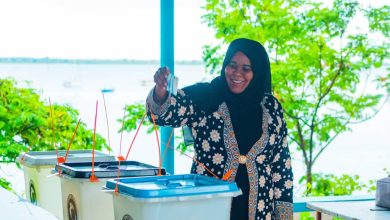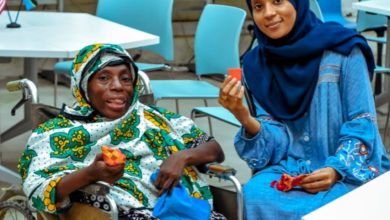Radio amplifies farmers’ voices on climate and seeds

IT is a typical afternoon somewhere in rural Tanzania. Farmers are busy with their daily chores, tending crops, checking on livestock and navigating the unpredictable rhythms of weather that seem to have a mind of their own.
But recently, many of these farmers tuned into something different and that is a radio programme that didn’t just entertain but gave them a platform to speak, question and challenge policies that directly impact their lives.
Farm Radio International (FRI), partnering with national stakeholders, just wrapped up an unprecedented On Air Dialogue series in Dodoma that got more than 3,800 farmers from across Tanzania actively talking about the big issues: climate change adaptation, local seed systems, value chains and the National Ecological Organic Agriculture Strategy (NEOAS 2023-2030). The result?
A vibrant chorus of rural voices, urging policymakers, civil society and fellow farmers to take bold, practical steps. This is not your ordinary call-in show. The project, funded by Biovision Foundation under the Interactive Radio for Ecologically Sustainable Agricultural Practices (IRESAP), went beyond broadcasting.
It was grounded in real experiences, linking grassroots realities with global frameworks like the International Treaty on Plant Genetic Resources for Food and Agriculture (ITPGRFA) and the United Nations Declaration on the Rights of Peasants (UNDROP).
“We don’t just want to talk at farmers,” said Susuma Msikula, Tanzania Country Programme Coordinator for FRI. “We want to listen, learn and work with them to shape policies that actually fit their realities.” The dialogues aired live for 60 minutes weekly from November to December 2024, on five trusted partner stations spanning the Central and Northern zones.
Each episode brought farmers, experts and policymakers into the conversation, while mobile phone polling allowed thousands more to join in without leaving their farms.
The first theme ‘Climate Change Adaptation’ elicited some telling insights. Nearly half of the listeners (46.1 per cent) pointed to more heatwaves and droughts as the clearest sign that something’s going wrong with the weather, followed by nearly a third (30.5 per cent) highlighting unpredicted rainfall seasons.
Interestingly, women were more likely to report heatwaves and droughts, while older farmers noticed pest and disease outbreaks more than their younger counterparts.
But here’s where the story gets hopeful: close to 60 per cent said that tree planting was their go-to solution, emphasising its role in cooling the land, protecting soil from wind damage and even reducing drought effects.
ALSO READ: Tanzania backs united African front on climate action
Others pushed for soil and water conservation techniques. There was a loud call for policy support and environmental education for all ages because, as these farmers see it, knowledge is just as vital as rainfall.
Seeds of hope or confusion?
Next up: seeds. Local seed systems came under the spotlight with a surprisingly youthful audience 67 per cent of respondents were under 34 years old and men outnumbered women by nearly three to one. So, what defines a “local seed” for Tanzanian farmers?
Half described them as seeds “produced and nurtured naturally,” while others valued their nutritional punch, flavour and affordability. Yet, nearly a quarter of respondents confessed to confusion, sometimes mixing up local seeds with those bought from dealers. This signals a critical gap in awareness and education.
Farmers called for better preservation of indigenous seeds, stronger seed banks, clear legal frameworks and more accessible education on seed rights. When the conversation turned to value chains the economic routes that move products from farm to market the priorities shifted.
Over 40 per cent of farmers focused on improving product quality, while a third urged better advertising to get their produce noticed. Preventing loss and damage came next, followed by calls for training on value addition, like processing crops into higher-value goods.
Yet barriers loomed large: a third cited lack of training, poor market access and inadequate infrastructure as major hurdles that keep their hard work from paying off as it should. Perhaps the most surprising revelation came when farmers were asked about the National Ecological Organic Agriculture Strategy (NEOAS 2023-2030).
More than half admitted they had never even heard of the policy. A third had heard of it but didn’t quite get what it meant. Older farmers knew a bit more and men were generally more aware than women.
Those in the know emphasised the need for more education and government support, seeing the strategy as a potential goldmine for youth employment and selfreliance.
Strong voices, clear messages
Across all episodes, one thing was clear: Tanzania’s rural farmers are no strangers to the challenges facing agriculture today.
They understand the stakes climate, seeds, markets and policy and they want meaningful change. What stood out was their embrace of ecological practices: tree planting, reliance on indigenous seeds, value addition and pushing for policies that truly represent them.
Yet, the chorus also called for better education, easier market access and stronger government accountability. Women made up 30 per cent of participants and often focused on food safety and access.
Youth about 68 per cent of the audience craved employment and stronger policy support. Meanwhile, older adults emphasised systemic reforms and enforcement. This mix points to a rich diversity of perspectives that any policy must consider.
The voices from the radio didn’t end with just talk. In August 2025, the National Project Advisory Panel convened in Dodoma to turn those insights into action plans.
Policymakers, farmer leaders, civil society organisations and government representatives all hashed out next steps. Here’s what they want from the different players Policymakers: Protect farmers’ rights through seed laws that respect international treaties, integrate agroecology into national plans and fund inclusive platforms where farmers have a real say.
Farmers: Join seed banks and ecological farming groups, use radio and mobile tools to influence decisions and seek training to improve product value and market readiness. Civil Society: Support farmer training on seeds and marketing, push for policies rooted in farmer experience and build alliances to protect biodiversity and sustainable food systems.
At its heart, the IRESAP project demonstrates that radio remains one of the most powerful tools for rural communities. By turning listeners into active participants via mobile polling, Farm Radio International is bridging the gap between policymakers and those who feed the nation.
The innovative use of technology combined with trusted local voices has created a feedback loop that respects the wisdom of farmers while bringing expert knowledge to their doorsteps or rather, their radios.
As Tanzania’s agricultural landscape grapples with climate uncertainties and market pressures, the lessons from these On Air Dialogues offer a roadmap. It’s about empowering farmers with information, technology and policy backing to foster ecological, sustainable farming that can withstand climate shocks while nourishing communities.
The voices that emerged aren’t just farmers; they’re educators, innovators and activists on the front lines of a changing world. With support and recognition, Tanzania’s rural farmers can indeed be architects of their own future.
There you go a feature that’s full of energy, datadriven insight and a touch of humour while keeping it serious enough for a development or national publication. If you want, I can also draft a catchy intro or pull-out quotes for a side-bar next!





